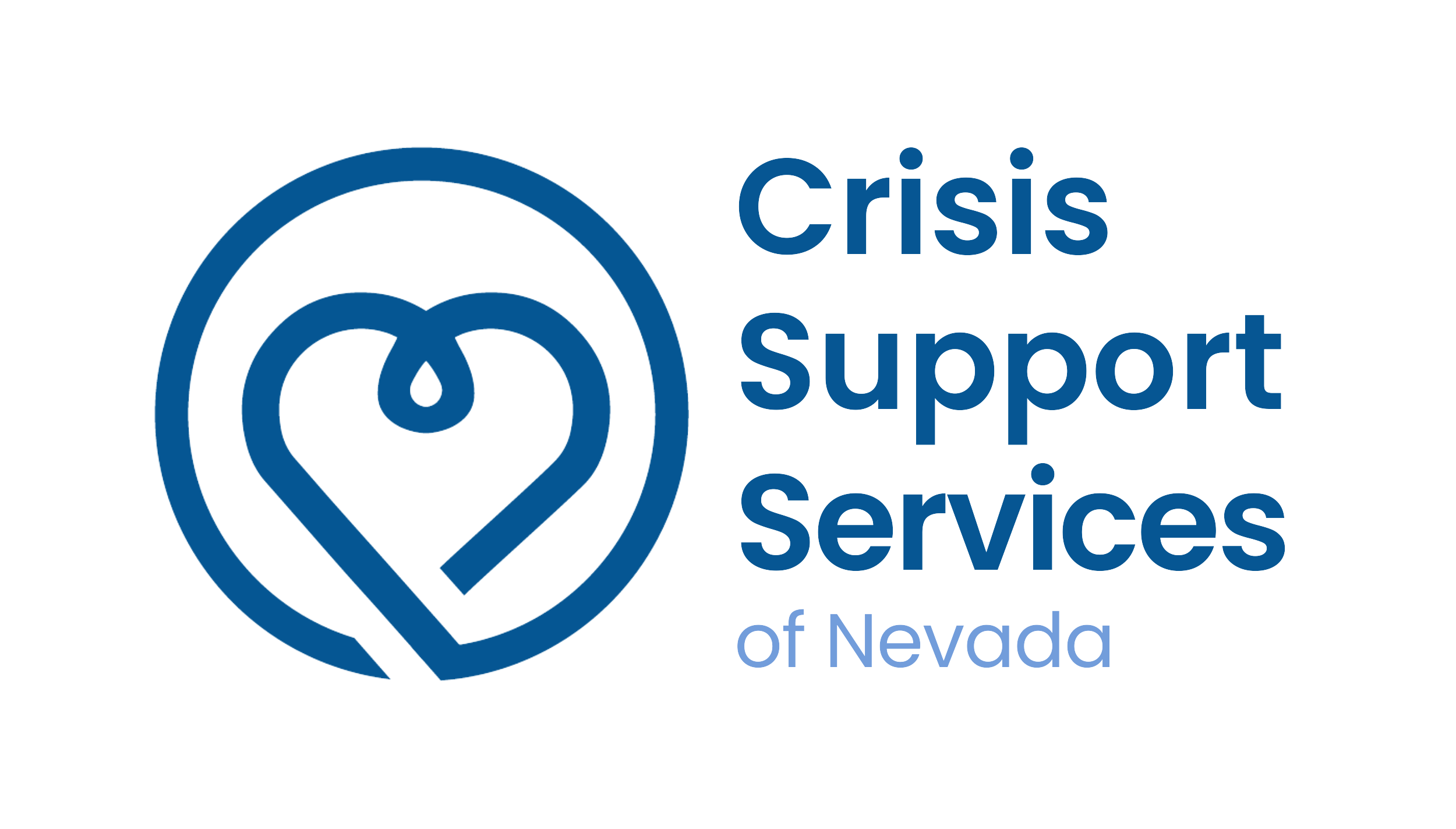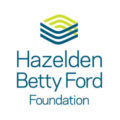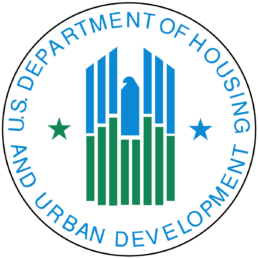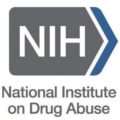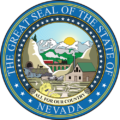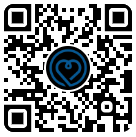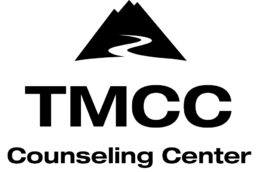Power-Based Violence Survivor Resource List
We are here to help all sexual assault survivors—whether the attack took place today or 30 years ago. You can call our sexual assault hotline 24 hours a day, seven days a week, 365 days a year for immediate assistance. Our sexual assault advocates offer free, confidential support to survivors of sexual assault throughout Northern Nevada and Eastern California communities.
Sexual Assault Hotline
Sexual Assault Text Line
Stalking Help
What is Stalking?
Stalking is a persistent pattern of unwanted behavior caused by another person that makes you feel scared for you or your family's safety.
Past CSSN Board President Robin Brockelsby shares her story about the terror of being stalked and how she and her family moved forward and thrived again.
We’re here to help. 24/7.
If this is an emergency, please call 911.
Get Help if you or Somebody you Know Has a Stalker
If you or someone you know has a stalker, we are here to help you through your darkest moments to get to a better tomorrow. Crisis Support Services of Nevada (aka Crisis Call Center) staff and volunteers are here 24/7/365. If you or someone you know is struggling and needs help, call or text 988, or visit the Lifeline Chat to chat with a caring counselor.
Things you can do if you have a stalker:
- If you are in immediate danger, call 911.
- Trust your instincts. Don’t downplay the danger. If you feel you are unsafe, you probably are.
- Take threats seriously. Danger generally is higher when the stalker talks about suicide or murder, or when a victim tries to leave or end the relationship.
- Don’t communicate with the stalker or respond to attempts to contact you.
- Keep evidence of the stalking
- Consider getting a court order that tells the stalker to stay away from you.
- Contact the police. Every state has stalking laws. The stalker may also have broken other laws by doing things like assaulting you or stealing or destroying your property.
- Tell family, friends, roommates, and co-workers about the stalking and seek their support.
- Crisis Support Services of Nevada staff and volunteers are here 24/7/365 contact us at (775)784-8090, or text LISTEN to 839863, we can help you devise a plan and get the help you need.
Information about stalking:
- 1 in 4 women and 1 in 13 men will be stalked in their lifetime
- Most common age group to be stalked is 18-24
- 7.5 million people are stalked in one year in the United States.
- Over 85% of stalking victims are stalked by someone they know.
- 11% of stalking victims have been stalked for 5 years or more.
- 46% of stalking victims experience at least one unwanted contact per week.
Are you a student?
We offer on-campus support for stalking survivors.
More Information on Stalking
If you need more information on stalking please go to The Stalking Resource Center. They have information about how to get help and how to deal with the situation. You can always call us as well, we are here to help 24/7/365. Please call us at (775)784-8090, or text 988.
Help a Victim of Stalking
In order to help somebody who is having an issue with a stalker you should be supportive and listen to the situation. You can help the victim come up with a plan to deal with the situation:
Listen
Listen, show support and be sure not to blame the victim for the crime.
Plan
Come up with a plan to deal with the situation. Make sure the victim and you are safe.
Take action
Talk to somebody that can help with the situation. Take steps to make sure the victim is safe and contact the police if necessary.
Looking for Resources?
Visit our resource list to explore various resources across Nevada including emergency shelter, financial assistance, legal services, therapy and counseling, and more.
Sexual Assault Prevention Education
Sexual violence can happen to anyone. Talking about it can be hard, but it can help keep someone you love safe. Learning about consent, bystander intervention and safety planning are ways that we as a community can help prevent sexual violence.
The Sexual Assault Support Services (SASS) team is dedicated to helping any victim of sexual violence. SASS partners with other agencies to educate the public about sexual assault prevention with information about what sexual violence is, what consent looks like, the importance of bystander intervention, and information about safety planning. One of our primary goals is to stop sexual violence before it begins through public awareness.
YourSPACE Sexual Assault Prevention Education
The YourSPACE program began in 2012 with the State of Nevada’s Approved Sexual Assault Prevention Plan. One of the primary goals of the plan is to stop sexual violence before it begins through statewide education. That’s where YourSpace comes in.
Our highly trained and skilled outreach specialists in prevention education go throughout the community–to schools, businesses, and gatherings–and present tailored sexual assault education. Anyone can have a presentation on any topic relating to sexual violence, personal well-being or community health.
These presentations are 100 percent free; we’ll travel to you and can present on an area or topic that you’ve identified as critical. Please contact us for scheduling at 1-775-221-7600.
What Topics Can a YourSPACE Presentation Cover?
Social Norms
What are they in today’s society?
Gender
What is it? How might we approach talking about it?
Personal Boundaries
How can we establish, present and respect personal boundaries?
Workplace Sexual Harassment
What does it look like and how can we stop it?
Sexual Assault
How does it happen, who’s vulnerable and how can it be prevented?
Relationship Abuse
What does it look like, how do I help myself or a friend?
Additional Sexual Assault Education Resources
Carries out national programs to prevent sexual violence, help survivors, and ensure that perpetrators are brought to justice.
Focuses on developing and expanding outreach and education regarding interpersonal violence to students, faculty and staff across the UNR campus.
Program designed to prevent the initiation of emotional, physical and sexual abuse in adolescent dating relationships.
Designed to reduce dating violence and sexual harassment among adolescents.
Dating violence prevention program that uses the relationships between high school athletes and their coaches to change social norms and behaviors.
Aimed at reducing bullying, peer victimization, and other types of interpersonal violence.
List of shelters and emergency housing in Nevada from the U.S. Department of Housing and Urban Development.
Learn more about sexual consent with the F.R.I.E.S. acronym from Planned Parenthood.
Substance Use Disorder Help
We are Nevada’s lifeline.
Free and confidential, 24/7 in-the-moment substance use disorder support.
The Substance Use Disorder Helpline is a free, confidential, 24/7 phone and text line staffed by the Crisis Support Services of Nevada (CSSNV). It is available for anyone in the state of Nevada. This addiction help hotline not only supports people with drug and alcohol addiction, but provides support and help for family members as well.
When Someone in Nevada Calls or
Texts The Substance Use Disorder Helpline:
They are offered free addiction help, as well as referrals to substance use disorder counseling and treatment resources throughout the state.
Crisis Support Services of Nevada’s
Substance Use Disorder Helpline is:
A 24-hour helpline that is completely anonymous and provides comfort, guidance, and resources to those struggling with addiction.
Crisis Support Services of Nevada has always provided de-escalation and safety planning services, but now ongoing support is available and facilitated by a case manager as a new service provided by our organization. By offering continued encouragement and guidance, it is our goal to help people in Nevada navigate to the appropriate services, at the appropriate place, at the appropriate time. There is hope for a better tomorrow.
It doesn’t matter how big or how small your crisis is, Crisis Support Services of Nevada is here. Addiction help is available free of charge, 24 hours a day, 7 days a week. Both drug and alcohol addiction can be treated. Tell us your story.
We are here to listen and help.
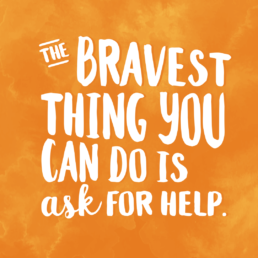
Get Substance Use Disorder and Addiction Help
Substance Use Disorder is the overindulgence in or dependence on an addictive substance, especially alcohol or drugs. Substance use disorder and addiction do not discriminate. It impacts all walks of life—every gender, ethnicity, race, sexual orientation, and socioeconomic class. You are not defined by your addiction.
Substance use disorder can start innocently and spiral out of control quickly. It can make its way into our lives without anyone realizing it’s made a home there. Substance use disorder impacts millions of people each year. We understand that people affected by substance use disorder can feel as if there is nowhere to turn—the recovery process does not have to be complicated or confusing. We have the resources to get you, or your family member, the help that you need.
If you or someone you know is struggling with substance use disorder, please call our hotline number toll-free at 1-800-450-9530 or text IMREADY to 839863. Together, we can get to a better tomorrow through judgment-free support. We provide resources for substance use disorder counseling and treatment for those struggling with addiction.
Warning Signs of Addiction and Substance Use Disorder
By recognizing the warning signs of addiction and substance use disorder in yourself or in others, you are taking the first steps in the addiction recovery process. From acknowledging you have a problem and transitioning from this awareness to taking action, you will learn more about why the addiction is present and what impact it has on you and the people around you.
By educating yourself through the resources that we provide, long-term recovery is possible. Learning how to develop new coping mechanisms and maintaining sobriety will also come hand-in-hand with stronger relationships and a healthier lifestyle. It is possible to make your greatest pain, your greatest strength.
Physical Signs of Substance Use Disorder Include:
- Extreme fluctuations in weight
- Bloodshot or glazed eyes
- Dilated or constricted pupils
- Broken capillaries on nose and face
- Noticeable inattention to personal hygiene
- Difficulty sleeping or sleeping too much
- Cravings and sickness when the substance is not available
Behavioral Signs of Drug Addiction Include:
- Anxiety, aggression, and irritation
- Changes in social interactions and networks
- Depression
- Changes in personality and daily habits
- Inability to focus
- Struggling to maintain relationships
- Engaging in criminal activity
If you find yourself or a loved one is struggling and continuing to use despite the negative consequences to themselves, family or friends, they may need substance use disorder help. If you are looking for ways to help someone suffering from substance use disorder and addiction, or feel you are suffering from alcohol addiction or drug addiction, please call the helpline toll-free at 1-800-450-9530 or text us at IMREADY 839863. Whether you or your family member is a long-term user, free addiction help is available.
Substance Use Disorder Resources
If you or someone you know is struggling with substance use disorder, you are not alone. There are a variety of resources and support systems to help you find a better tomorrow. Substance use disorder and drug addiction can be attributed to a variety of factors. You do not have to choose to suffer. Take control of your mental health.
Search Behavioral Health NV's database to find certified behavioral health providers specializing in substance use disorder and co-occurring mental health disorder treatment services.
Anonymous help is possible.
Substance use disorder help is accessible when you need it the most.
FAQs About Substance Use Disorder and Addiction
Whether you are an expecting mother, friend or family member of a loved one who is expecting, there are many resources available for pregnant women and their support systems as they navigate the delicate process of recovering from substance use disorder.
For women who are expecting, substance use disorder treatment can mean the difference between giving birth to a healthy child or having a baby with serious developmental problems—in some cases, stillbirth or death after delivery. While many pregnant women and teens fear the repercussions of sharing their drug or alcohol addiction or seeking professional help, it is clear that recovering from substance use disorder is by far much safer than giving birth while actively using and addicted.
Yes. Even medication meant to help a person with pain, sickness, or a mental health disorder can become addictive if not taken as directed, or if the medication was prescribed for another person. Your body may also react differently to certain medications. If you feel you are addicted to a medication prescribed by your doctor, speak with your doctor immediately.
Any chemical substance, whether legally prescribed by a doctor or used illegally for recreational purposes, can have a direct effect on the growth and health of the fetus. As they grow older, babies born exposed to drugs or alcohol before birth are more vulnerable to developmental delays, learning problems, and behavioral disorders.
Abusing alcohol can be determined by both frequency and volume of drinking. The U.S. Department of Health and Human Services defines binge drinking as four drinks in two hours for women, and five drinks in two hours for men. Drinking every day, thinking about drinking and not being able to, or drinking even when there are negative consequences are all signs that you may have an addiction. The faster you notice and accept the potential that you are abusing, the more likely you are to be able to turn your habits around. Reach out today.
The support of family and friends is critical to helping someone struggling with substance use disorder. Starting the conversation around addiction can be difficult. The National Institute on Drug Abuse has many resources for family members and friends who are looking to assist a loved one: NIDA Where Family Can Go For Information and Treatment Options. You can also call 775-825-4357 or 1-800-450-9530 for information and resources.
Campus Victim Advocate Program
The Campus Victim Advocate (CVA) program provides FREE support and services to survivors of power-based violence to help you process in a confidential setting and connect you with community resources.
How to Contact the CVA
What is Power-Based Violence (PBV)?
PBV is any form of violence that uses assertion of power, control, and/or intimidation with the intent to harm another emotionally, psychologically, or physically. It includes:Sexual assault | Domestic violence | Intimate partner violence | Harassment (any form) | Human trafficking | Stalking | Intimidation | Bullying
What Supports are available to Northern Nevada students?
Navigating campus life can be a challenge. Compound that with being a victim of power-based violence on a college campus and the world may feel unbalanced, especially when your future hopes and dreams lay in the education you have set your sights on for so long. We are here to help address any of your concerns or fears.
Our goal is to proudly serve individuals of any form of power-based violence who have been victimized acutely (within the last 48 hours), recently (within the last year), or historically (over one year or from childhood). We will meet with you to provide you with the best possible resources and support.
Our trained campus advocate is confidential and provides free support. They will meet with you in their office on campus or in a discrete public location to provide you with options available to you. We are committed to providing the most professional, sincere and empowering advocacy to you possible whether you are staff, faculty, or student.
How can the Campus Advocate help me?
Our campus advocate provides free, confidential support to any college community member who has been a victim of power-based violence. The services we provide include:
- Immediate crisis intervention
- Personal advocacy – assistance with your boss, landlord, professor, etc.
- Emotional support for recent or past events
- On/off-campus resources and referrals
- Private and confidential consultation
- Safety planning
- Accompaniment to a forensic exam, hospital, police interview, or court hearing
- Assistance in filing victim compensation and protection order applications
- Connection to a support group
Additional Resources for Students
If you are in need of resources, please visit our resource library where you can find local resources across Nevada ranging from emergency shelters and financial assistance to counseling and support groups.
Offers assistance in making decisions about careers, college readiness, relationships, and other personal issues that can interfere with normal day-to-day life for TMCC students, faculty, and administrators.
Aimed at reducing bullying, peer victimization, and other types of interpersonal violence.
Focuses on developing and expanding outreach and education regarding interpersonal violence to students, faculty and staff across the UNR campus.
Offers individual counseling, group therapy, walk-in consultation, and outreach activities.
Learn more about the Laws surrounding sexual assault in Nevada.
A national resource for victims of campus sexual assault.
Designed to reduce sexual and other forms of interpersonal violence perpetration and victimization.
The Care Center offers confidential virtual support and services to members of the UNLV, NSC, and CSN communities impacted by sexual violence, relationship violence, family violence, and/or stalking.
Domestic Violence Help
Domestic violence comes in many forms and does not discriminate among victims or offenders. If you are a victim, remember this is not your fault.
If you or someone you know is experiencing domestic violence, we are here to help you through your darkest moments to get to a better tomorrow. Call our domestic violence hotline at 775-221-7600 or text “VSU” to 839863 for free, confidential support. If you are looking for a safe haven to escape domestic violence, you can find a domestic violence shelter near you. Resources and support are available across the state of Nevada.
Looking for a domestic violence shelter?
Explore resources throughout Nevada and the U.S.
Get Domestic Violence Help
Acts of intimidation, abuse and domestic violence can leave us feeling powerless and alone. Crisis Support Services of Nevada is a place for you to turn to discuss your options or experiences and to ensure you are safe and heard. Our advocates are available 24 hours a day, seven days a week, 365 days a year and will never pressure you to report a crime or do anything you are uncomfortable with. We are here as a judgement-free resource, empathetic ear, caring heart and helping hand in your time of need.
If you are experiencing domestic violence or abuse, we can provide immediate crisis intervention and support you in the aftermath of trauma. We can accompany you to the hospital or law enforcement, if you’d like us to, as well as provide personal advocacy, refer you to counseling and criminal justice support, and assist in filing all available victim compensation applications.
Call 775-221-7600 or text “VSU” to 839863 to get domestic violence help any time, day or night, 365 days a year.
Looking for Resources?
Visit our resource list to explore various resources across Nevada including emergency shelter, financial assistance, legal services, therapy and counseling, and more.
Warning Signs of Domestic Violence
The signs of domestic violence are not always straightforward, and may not present themselves at the very beginning of a relationship. Many times, abuse builds and becomes more powerful over time. The signs and signals of abuse can also be unique, just like each relationship has unique qualities.
In general, if you answer “yes” to any of the following questions you or someone you love may be experiencing domestic violence:
- Do you ever feel afraid of your partner?
- Do you feel as though you’re getting unwanted attention?
- Do you feel as though your boundaries are not being respected?
- Do you feel like you’re being kept away from your friends and loved ones?
Other common signs of domestic violence include:
- Constantly putting you down or making you feel ashamed
- Extreme jealousy or anger when you are with friends or family
- Keeping you away from family, friends, work or school
- Pressuring you to have sex when you don’t want to
- Keeping control of your money and household expenses
- Threatening to hurt or take your children or your pets
- Harming you or your children physically (punching, kicking, using weapons, etc.)
- Preventing you from calling law enforcement
- Blaming you for bad things that happen
- Controlling what you wear, who you see, and how you act
Nobody deserves to experience any type of domestic violence or abuse. If you've answered “yes” to any of these questions, call our domestic violence hotline to get domestic violence help. Contact us at 775-221-7600 or text "VSU" to 839863 for free, confidential support at any time.
What is Domestic Violence?
Domestic violence, also called intimate partner violence (IPV), domestic abuse or relationship abuse, is a pattern of behaviors used by one partner to maintain power and control over another partner in an intimate relationship. This behavior can come in many forms, including intimidation, emotional abuse, isolation, making light of the abuse or denying it all together, victim blaming, leveraging children, economic abuse, coercion and outright threats. To learn more about these behaviors, explore the Power and Control Wheel.
Report Domestic Violence
If you are experiencing domestic violence or suspect someone that you love is a victim of domestic violence, there are many resources available to help. To get started, you can contact Crisis Support Services of Nevada, or you can go directly to law enforcement to report domestic violence.
If you are in an emergency situation, you can call 911 and file a report with the responding officers. You may also contact your local Victim Services Unit or Special Crimes Unit for help reporting domestic violence.
The Las Vegas SafeNest Domestic Violence Hotline can be reached at 702-646-4981. In Reno, you can contact the Reno Police Department Victim Services Unit at 775-657-4519. To find resources in your area, contact us at 775-221-7600 or text “VSU” to 839863.
Victims deserve to be believed. If you do not receive the support you need from police, find a local domestic violence shelter that can help you find a safe, secure place to stay.
Help a Victim of Domestic Violence
Helping someone you care about who is in an abusive relationship can be complicated. Sometimes the best way to help is to be supportive and allow your loved one to feel safe and empowered to step forward on their own. The tips below can help you if you suspect domestic violence:
Empathize
Understand the difficulty of their situation and provide support where you can. If your loved one continues in an abusive relationship, understand that there are many reasons for doing so.
Empower
When possible, give your loved one the resources and confidence to reach out for help.
Engage
If your loved one remains in an abusive relationship, help them create a safety plan. If they leave, be sure to actively keep them in their support system.
Are you a student?
We offer on-campus support for domestic violence survivors.
FAQs About Domestic Violence
Yes. Domestic violence does not discriminate. It spans all races, genders, ethnicities, sexual orientations and socioeconomic backgrounds.
As a loved one witnessing domestic violence, it can be difficult to know how to help. Understanding that the decision ultimately lies with your loved one is key. You can support them by being non-judgmental of their decision to stay, helping them prepare to leave regardless of whether they do and by standing by to help provide support if they make a decision to leave. You or your friend can always call the Crisis Support Services of Nevada, anonymously, to discuss your concerns.
Only “mandated reporters” such as doctors, nurses and teachers are obligated to report domestic violence. This also applies if a victim is under 18 years of age. While it is in your best interest to remove yourself from danger, and to report your abuse, you are not obligated and we will never pressure you to do so.
Child Abuse Help
Child abuse and neglect is a widespread and dangerous problem. In Nevada, the number of reports for suspected child abuse and neglect has continuously increased year over year. Individuals can call Crisis Support Services of Nevada 24/7 at 1-833-803-1183 to report child abuse.
How to Report Child Abuse
If you suspect and have a reasonable cause to believe child abuse has occurred or may be occurring, you should report that person as soon as possible to local authorities, Child Protective Services, or by calling Crisis Support Services of Nevada’s 24-hour crisis line at 1-833-803-1183. A person with reasonable cause that makes a report does not have to provide proof that abuse has occurred as an investigation is the responsibility of Child Protective Services and/or law enforcement.
Incoming calls to report child abuse that are made during normal business hours are transferred to the appropriate agency, and after-hours reports are taken by Crisis Support Services of Nevada staff for all overnight, weekend and holiday hours. All child abuse and neglect related reports will be directed to Division of Child and Family Services, Child Protective Services or law enforcement in the appropriate county depending on the level of urgency involved.
Child Protective Services (Reno)
Child Protective Services(Las Vegas)
Child Protective Services (Elko)
Childhelp National Child Abuse Hotline
Warning Signs of Child Abuse
Physical Abuse
Physical abuse is non-accidental, deliberate and intentional physical injuries to a child. Physical abuse can include shaking, biting, burning, cutting, twisting of limbs and excessive punishment. Some physical abuse indicators can include:
- Arm or leg dislocation or sprains
- Broken and/or fractured bones bruises
- Bites, burns, cuts, lacerations and injuries to internal organs, bites, burns, punctures, disfigurement, etc.
- Fear of going home
- Exhibits behavioral extremes, such as aggression or withdrawal
- Wary of adults
Emotional Abuse
This type of injury can result in observable and substantial impairment of a child’s behavior and includes excessive verbal assaults on a regular basis, like put-downs, threats, sarcasm, screaming or blaming. Indicators can include:
- Poor appetite
- Daytime toilet accidents
- Antisocial behavior
- Depression and/or attempts of suicide
- Exhibits extreme behavior, such as overly aggressive or passive
- Failure to thrive
Sexual Abuse & Exploitation
Sexual assault against a child happens when bribes or threats are used to engage a child, 16 years or younger, to perform sexual activities that are not limited to rape, oral sex, anal intercourse, incest, fondling or obscene remarks. Child exploitation includes, but is not limited to: taking pornographic photos or movies of minors, promoting prostitution of minors, obscene phone calls or inappropriate exposure of genitalia. Some indicators of sexual abuse and/or exploitation may include:
- Sophisticated or unusual sexual knowledge
- Depression
- Difficulty walking or sitting
- Delinquency or running away
- Torn, stained or bloody underclothing
- Painful, itching, bruised, bleeding or inflamed genital or anal areas
- Sexually Transmitted Diseases (STDs)
Child Neglect
Child neglect is an endangerment of a child because of the lack of standard attention, treatment and care required by the caregiver. Failure to provide food, shelter, education, medical care, supervision or other necessary care are forms of neglect. Indicators can include:
- Constantly hungry
- Has poor hygiene
- Underweight or exhibits other signs of malnutrition
- Development delays
- Speech problems
- Dressed inappropriately
- Unattended physical problems or medical abandonment
- Begs or steals food
- Exhibits constant fatigue
- States there is no caregiver
If you have any questions or need to report report child abuse, please call Crisis Support Services of Nevada: 1-833-803-1183
FAQs About Identifying and Reporting Child Abuse
Child Protective Services (CPS) is required by Nevada law to investigate reports of suspected child abuse and neglect. Their focus is to protect children from harm and to make sure that children live in safe environments. The actions taken by Social Services are determined by the family`s situation. Efforts must be made to help families overcome problems, but sometimes children must be removed from their homes to ensure their safety.
Reasonable discipline is not considered abuse. The following factors are considered when determining “reasonable discipline”:
- The child’s age
- The child’s physical or psychological conditions or disabilities
- The frequency and duration of the discipline
- The location of the physical discipline (example: face or buttocks)
- The use of an instrument (belt, cord, whip, etc)
Nevada law allows a parent or guardian to “spank” a child as a form of discipline, but an injury cannot be left on a child.
Persons making a report of suspected child abuse or neglect can’t be prosecuted or sued if the report is made without malicious intent. According to Nevada law, the person and agency receiving the report must maintain the anonymity of the person making the report.
Vulnerable Adult Abuse Help
Vulnerable adult abuse may include physical abuse, neglect, psychological or emotional abuse, financial exploitation, or self-neglect. To report vulnerable adult abuse or to get help, individuals can call Crisis Support Services of Nevada 24/7 with the number to the right.
REPORTING ABUSE
How to Report Vulnerable Adult Abuse
Vulnerable adult abuse, abandonment, exploitation and neglect is a crime and should be reported. Individuals throughout Nevada can call the 24-hour crisis hotline to report elder abuse or neglect.
Calls taken during normal business hours will be transferred to the appropriate agency. Crisis Support Services of Nevada handles all overnight, weekend, and holiday reporting. Assessments are made to determine the immediate degree of danger to the senior involved. Depending on severity, reports are turned over to the Division for Aging Services or the appropriate law enforcement agency. Reports are also taken 24/7 for disabled adult abuse and neglect.
Warning Signs of Vulnerable Adult Abuse
Most victims of vulnerable adult abuse are women, but some are men. Likely targets are individuals that depend on others for everyday life activities with no friends or family nearby. Types of vulnerable adult abuse include physical, emotional, neglect, abandonment, sexual, financial, and healthcare fraud. If you suspect and have a reasonable cause to believe vulnerable adult abuse has occurred or may be occurring, you should report as soon as possible to local authorities, Adult Protective Services or by calling Crisis Support Services of Nevada’s 24-hour vulnerable adult abuse hotline at 888-729-0571.
Warning Signs of Physical Vulnerable Adult Abuse
- Cuts, lacerations, puncture wounds
- Unexplained bruises, welts, and/or skin discoloration
- Injuries that have not been properly cared for (injuries may be hidden on areas of the body normally covered by clothing)
- Poor physical hygiene
- Dehydration and/or malnutrition
- Weight loss
- Burns (may be caused by cigarettes or contact with other objects)
Warning Signs of Neglect By Caregiver
- Dirt, fecal/urine smell, or other health and safety hazards in elder’s living environment
- Rashes, sores, lice on elder
- Inadequate clothing and/or unkempt appearance (hair, clothing, personal hygiene)
- Malnourished or dehydrated
- Untreated medical conditions
- Displays signs of trauma, like rocking back and forth
Warning Signs of Emotional Vulnerable Adult Abuse
- Withdrawn and hesitant to speak openly to others
- Appears helpless and fearful
- Agitated in presence of person inflicting abuse
- Depression
- Stops taking part in activities he or she enjoys
- Has trouble sleeping
Warning Signs of Financial Vulnerable Adult Abuse
- Missing personal belongings
- Numerous unpaid bills, overdue rent, etc.
- Purchases of items the senior would not normally buy
- Unusual or inappropriate activity in bank accounts
- Deliberate isolation from friends and family
- Signatures on checks, etc., that do not resemble the older person’s signature
- Power of attorney given, recent changes in or creation of a will
- An excessive amount of money is being expended on the care of the older person
- Placement in nursing home or residential care facility which is not commensurate with financial status of the senior
- Lack of personal grooming items, appropriate clothing and affordable comfort items such TV or radio
Warning Signs of Self-Neglect
- Inability to manage activities of daily living, including personal care, shopping, meal preparation, housework, etc.
- Inability to manage personal finances, giving money away or failure to pay bills
- Not keeping medical appointments, isolation
- Suicidal acts, refusing medical attention, substance abuse, malnutrition, dehydration, etc.
- Rashes, sores, fecal/urine smell, inadequate clothing
- Changes in intellectual functioning such as confusion, inappropriate response, disorientation to time and place, memory failure, incoherence, etc.
Important Phone Numbers
Elder Rights Intake Unit (Las Vegas/Clark County)
1-702-486-6930
Elder Rights Intake Unit (Statewide/All Other Areas)
1-888-729-0571
National Center on Elder Abuse
1-855-500-3537
National Adult Protective Services Association
1-217-523-4431
FAQs Related to Vulnerable Adult Abuse
Self-neglect is not a crime. An elder has the right to make his/her own choices unless a judge declares the individual incompetent. If you are concerned for the individual’s safety and well being, please call to make a Elder Abuse report so a caseworker can look into the individual’s safety. Caseworkers can provide information and resources that can help elders maintain their independence while staying safe.
I work in an elder care facility and suspect abuse of some of the patients. Am I required to report?
Yes. Section 1150B of the Social Security Act (the Act), as established by section 6703(b)(3) of the Patient Protection and Affordable Care Act of 2010 (Affordable Care Act), requires specific individuals in applicable long-term care facilities to report any reasonable suspicion of crimes committed against a resident of that facility.
Caring for a vulnerable adult person can be both rewarding and demanding. The requirements to manage healthcare, housework, finances and overall quality of life can take their toll over time. Caregivers may not even know they are being neglectful or abusive. If you are a caregiver that is experiencing some of the stress that may come from caring for an elder, you are not alone. It is important for caregivers to make sure they take time to fulfill their own personal needs, too.
There are also community organizations that can provide caregivers a break called respite care. For more information or to find a respite services and/or providers in your area, visit: archrespite.org/respitelocator
Domestic Violence Shelters
If you are in an abusive situation, a domestic violence shelter can give you a safe haven. While Crisis Support Services of Nevada does not have a domestic violence shelter, there are many within the state.
Domestic violence shelters in Reno, Las Vegas, and in other parts of Nevada are available to answer your calls for availability and eligibility 24/7. There are emergency domestic violence shelters and transitional housing assistance available in many parts of Nevada. Many of these shelters have waiting lists. Please call before going in person and ask if there is immediate availability and what their intake process requires.
Find a Domestic Violence Shelter in the Las Vegas Area
Find a Domestic Violence Shelter in the Reno Area
Find a Domestic Violence Shelter in Rural Nevada
Pershing County Domestic Violence Intervention - Pershing County
Phone Number: 775-442-1037
We’re here to help. 24/7.
If this is an emergency, please call 911.
Sexual Assault Hotline and Help
We are here to help all sexual assault survivors—whether the attack took place today or 30 years ago. You can call our sexual assault hotline 24 hours a day, seven days a week, 365 days a year for immediate assistance. Our victim services advocates offer free, confidential support to survivors of sexual assault throughout Northern Nevada and Eastern California communities.
If you have been sexually assaulted, it is important to know that this is not your fault—no matter the circumstances. Survivors of sexual assault, child sexual abuse, and incest are not to blame. Only the perpetrator is at fault.
Sexual Assault Support Hotline
Sexual Assault Support Text Line
Looking for Resources?
Visit our resource list to explore various resources across Nevada including emergency shelter, financial assistance, legal services, therapy and counseling, and more.
What Should I Do If I Was Sexually Assaulted?
If you are a survivor of sexual assault, consider doing the following:
Go to a safe place.
If you are in immediate danger, call 911. Help will come to you.
Do you need medical care?
If you have been injured during your assault, go to the Emergency Department. If not, going to the ER is usually not necessary because sexual assault examinations are not done there in Washoe County. There is a 24-hour program that will provide a medical examination and evidence collection. In most cases, pregnancy and HIV testing will be done and medication will be provided to prevent pregnancy and some sexually transmitted infections. This examination is provided at no cost to the survivor. Please call the 24/7 Sexual Assault Support hotline at 775-221-7600 or text "VSU" to 839863 for more info.
Speak with an advocate.
Our victim services advocates are available to assist survivors 24/7 through our sexual assault support hotline. Call 775-221-7600 or text "VSU" to 839863. Our highly trained and experienced team provides immediate crisis intervention services for survivors of sexual assault, as well as to family members, loved ones, and friends throughout Northern Nevada and Eastern California communities.
Report to Law Enforcement
Reporting the sexual assault to law enforcement is the survivor’s choice. We encourage sexual assault survivors to report the crime; however, a survivor’s decision should always be respected and supported, whether or not they choose to file a police report. Our victim services advocates are available to help you through the legal process of reporting a sexual assault. Please call our 24/7 Sexual Assault Support Hotline at 775-221-7600 or text "VSU" to 839863 for more information.
Get tested for sexually transmitted diseases.
The Washoe County Health Department or Planned Parenthood perform testing and you do not have to file a police report to receive medical treatment. Nevada law requires the county in which the crime occurred to pay for initial medical costs for survivors of sexual assault.
Emergency Room Phone Numbers
Northern Nevada Medical Emergency Room
1-775-356-4040
St. Mary’s Medical Center Emergency Room
1-775-770-3188
Renown Medical Center Emergency Room
1-775-982-4140
Are you a student?
We offer on-campus support for sexual assault survivors.
Support Groups
Our victim services advocates are currently not offering support groups. If you are interested in attending one or would like help finding a support group, please visit our resource library.
How can a Victim Services Advocate help me?
Our advocates provide free, confidential support to any survivor of sexual assault. The services we provide include:
- 24-hour crisis intervention and emotional support
- Personal advocacy – assistance with your boss, landlord, etc.
- Resource referrals and connections
- Ongoing case management and Follow-up support
- Safety planning assistance
- Accompaniment to a forensic exam, hospital, police report, or court hearing
- Forms assistance – Victim Compensation, Confidential Address Program, Protection Orders, VINE Notification, etc.
- Connection to a support group
- Outreach and prevention education
What is Sexual Assault?
Sexual assault is any unwanted, forced or coerced sexual activity. It includes inappropriate sexual contact or fondling, acquaintance rape, date rape, stranger rape, child sexual abuse and incest.
Sexual assault is not about sex. It is a crime of violence where sex is used as a weapon, motivated by the desire to have power and control over the survivor. Sexual assault violates not only a person’s body but also their sense of safety and control over their life.
How Do I Report a Sexual Assault?
Reporting the sexual assault to law enforcement is the survivor’s choice. We encourage sexual assault survivors to report the crime; however, a survivor’s decision should always be respected and supported, whether or not they choose to file a police report. Our victim services advocates are available to help you through the legal process of reporting a sexual assault. We are available any time of day to help sexual assault survivors.
You can also contact your local police department. Call the direct line of your local police station or visit the station in person. If you are on a college campus, you can contact campus-based law enforcement.
Law Enforcement Phone Numbers
Reno Police Department 1-775-334-2121
Sparks Police Department 1-775-353-2231
Washoe County Sheriff 1-775-785-4629
UNR Police Department 1-775-334-2677
Campus Victim Advocate 1-775-771-8724
If you live outside of Northern Nevada, call the National Sexual Assault Hotline for national resources:
1-800-656-4673.
If you are assaulted and you are considering filing a police report, please try to follow these guidelines to preserve evidence:
- Do not bathe or douche.
- Do not change your clothes.
- Do not brush your teeth or use mouthwash.
- Do not eat or drink anything.
- Do not apply any medication.
- Do not disturb or clean up the crime scene.
Even if you do these things, you can still get an exam. Please contact us if you have any questions or doubts.
Forensic examinations for collecting physical evidence can be conducted up to seven (7) days after an assault has occurred in Nevada. You can report the crime and have a forensic examination during this time period even if you have cleaned up and/or choose not to report the incident. Please call our 24/7 Sexual Assault Support Hotline at 775-221-7600 or text “VSU” to 839863 for more information.
What is CSSNV's Victim Services Unit?
CSSNV’s Victim Services Unit, formerly known as Sexual Assault Support Services (SASS), began in 1979 as a victim response program in collaboration with Washoe County and City of Reno agencies to provide quality care to sexual assault survivors and help them navigate the legal system as needed.
Our highly trained and experienced advocacy team provides immediate crisis intervention services for survivors of sexual assault, as well as to family members, loved ones, and friends throughout Northern Nevada and Eastern California communities. All services are offered free of charge 24 hours a day, 365 days a year.
Because rape and violence are so prevalent and can cause such devastating aftermath in the lives that it affects, it is important for our community to know that there are resources that can help victims become survivors. Our purpose for more than 30 years has been to provide unconditional support, resources, and options to those victimized by any form of interpersonal violence.
Sexual assault prevention starts with education.
Find sexual assault education resources.
